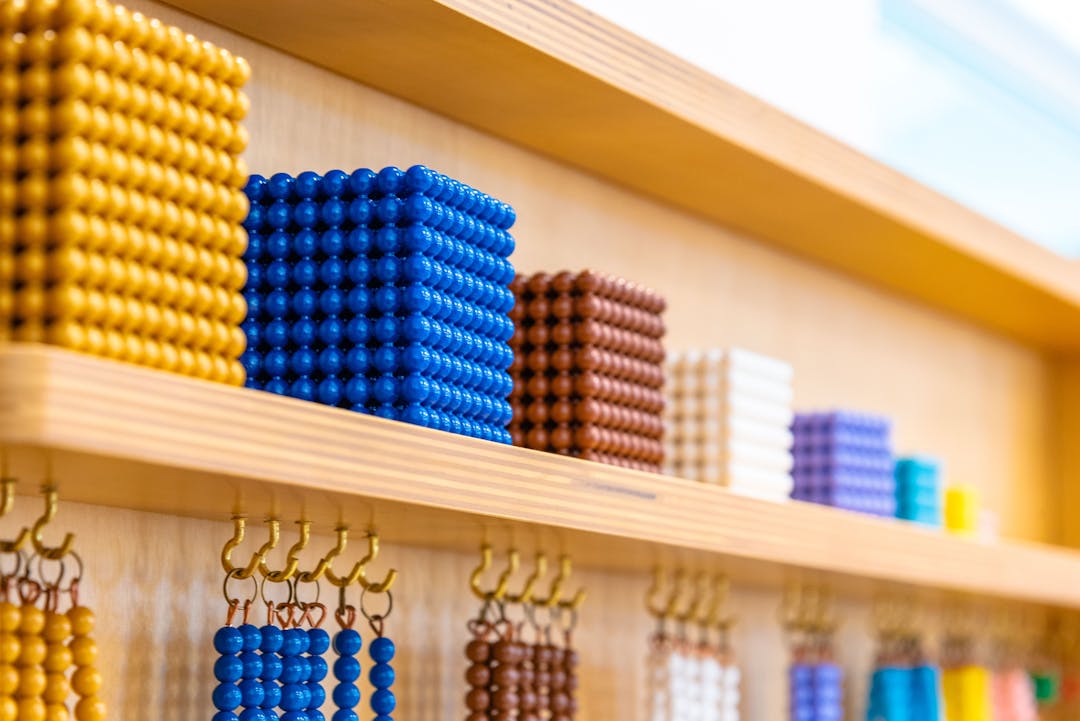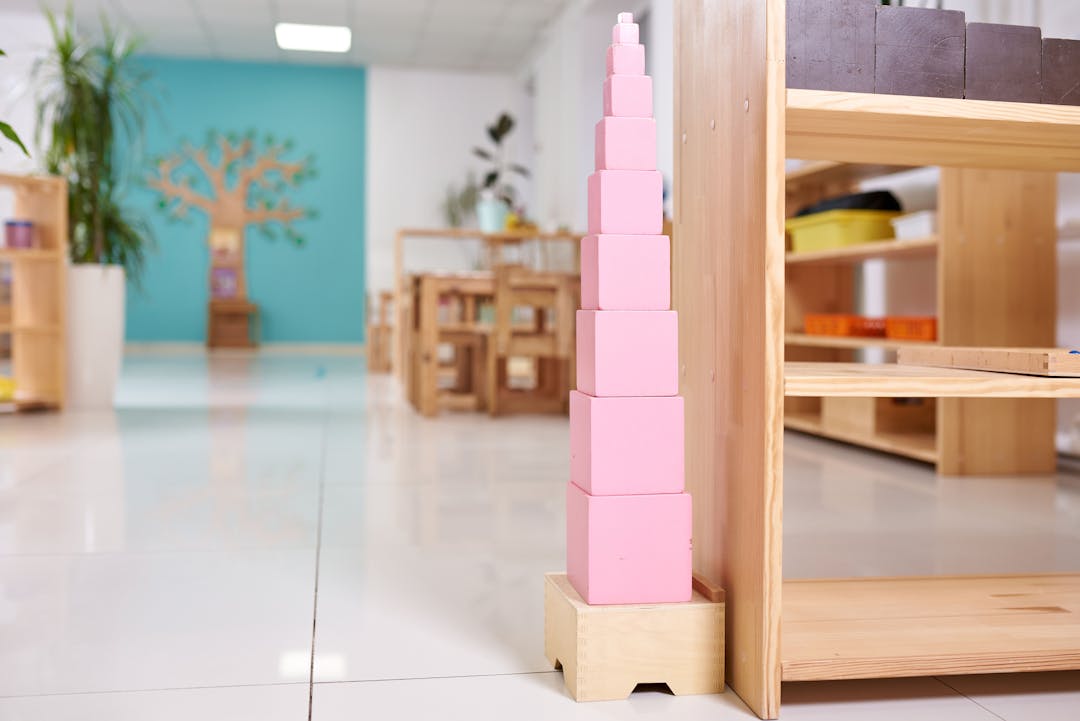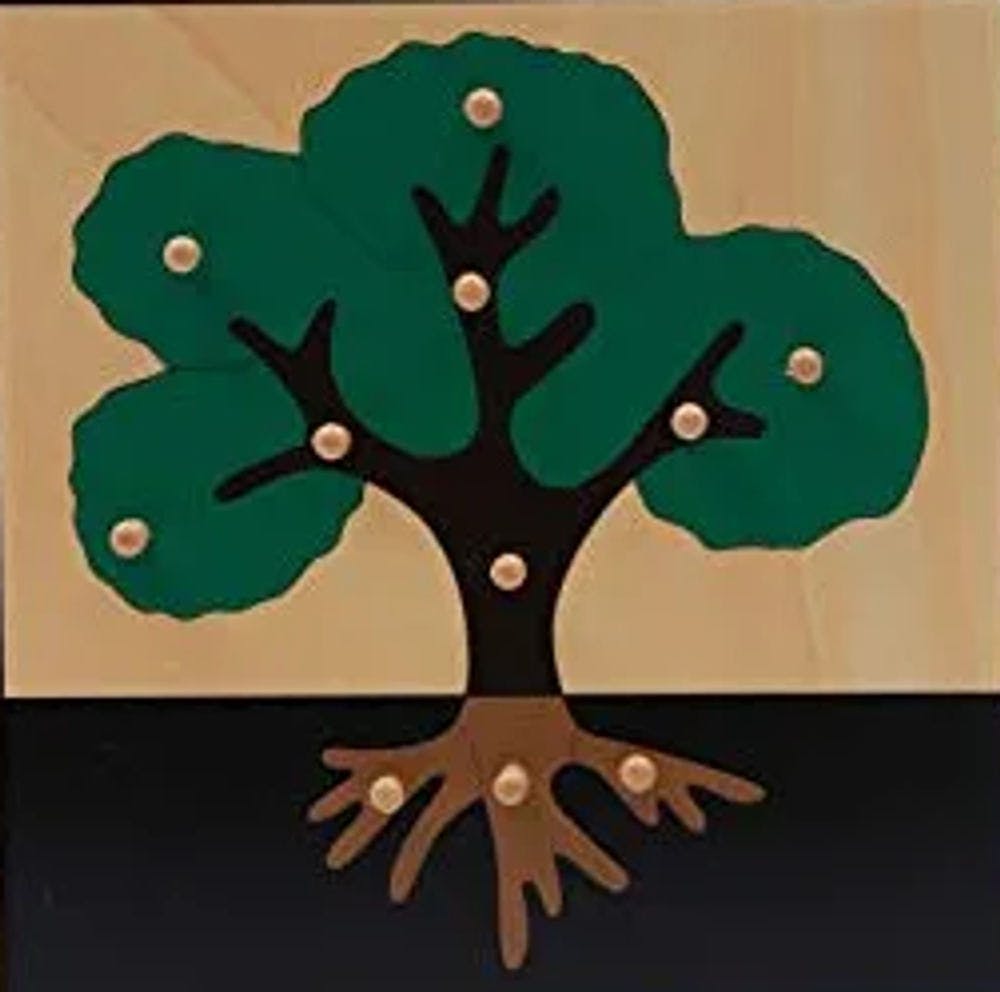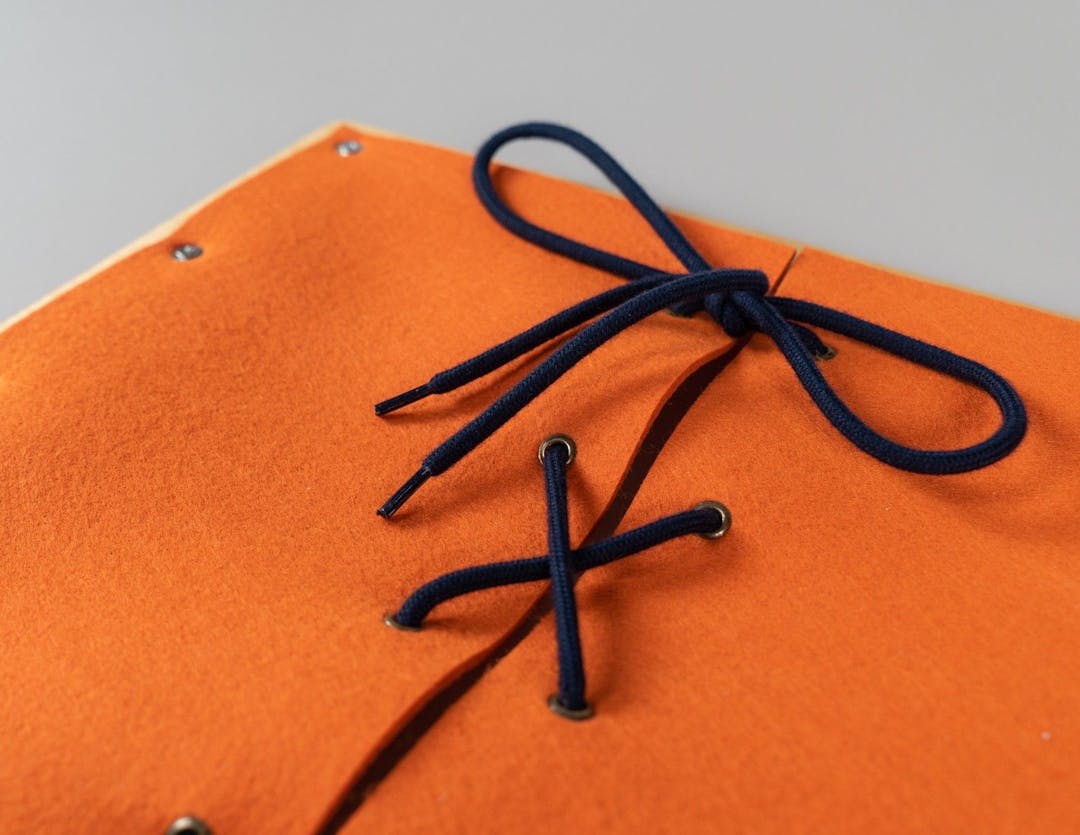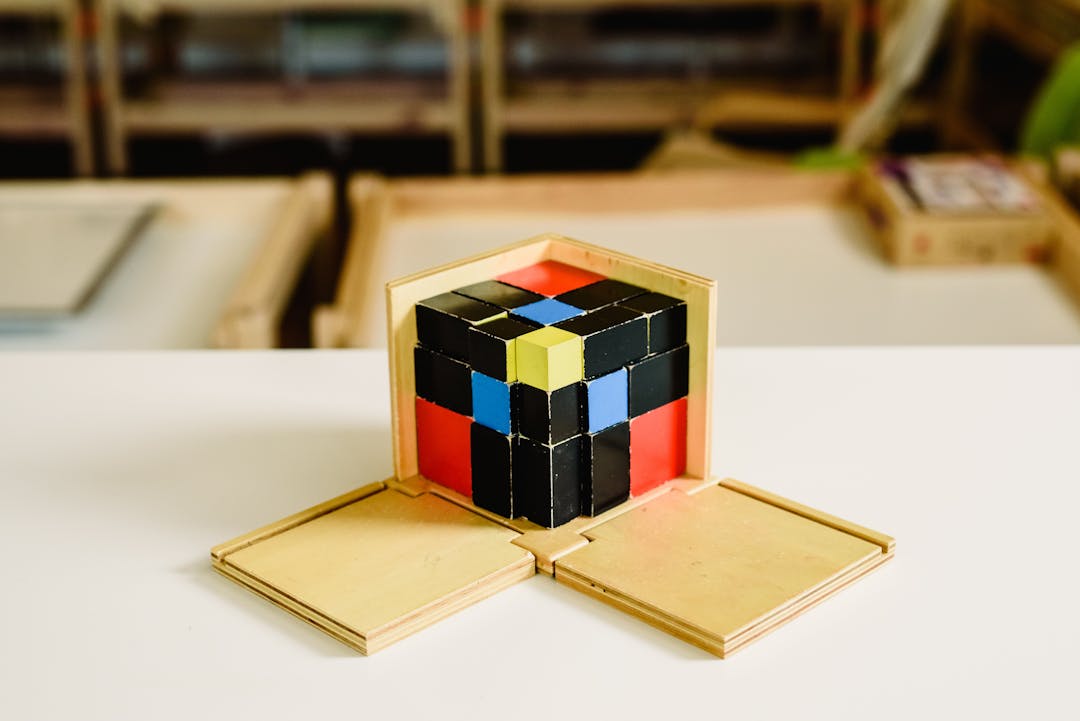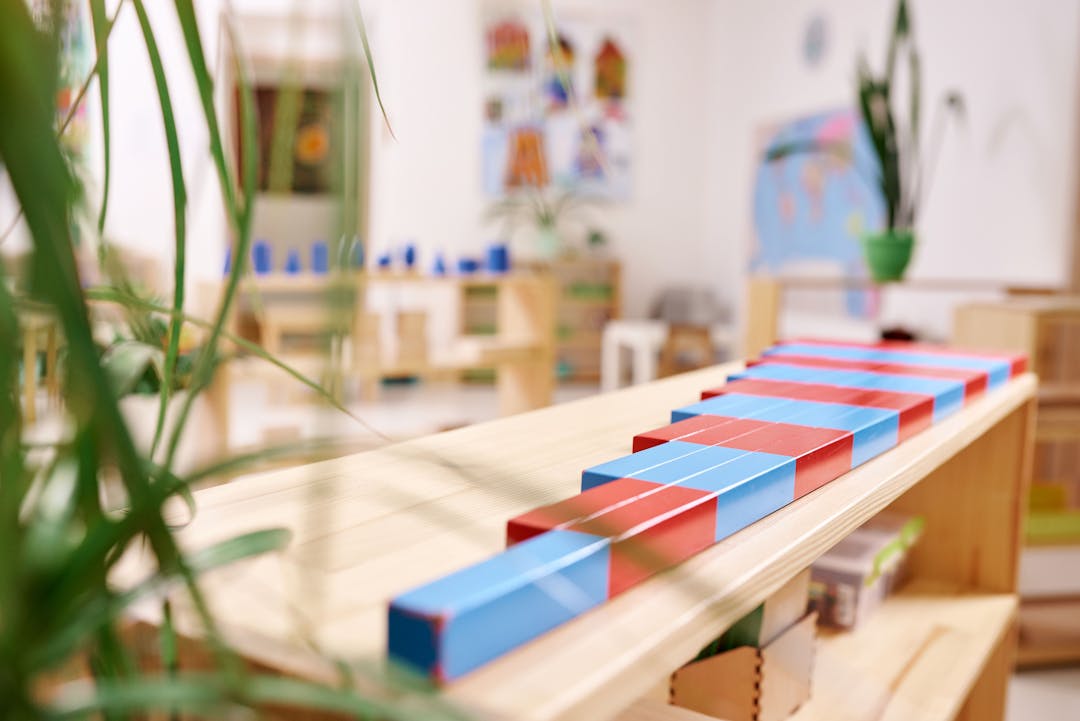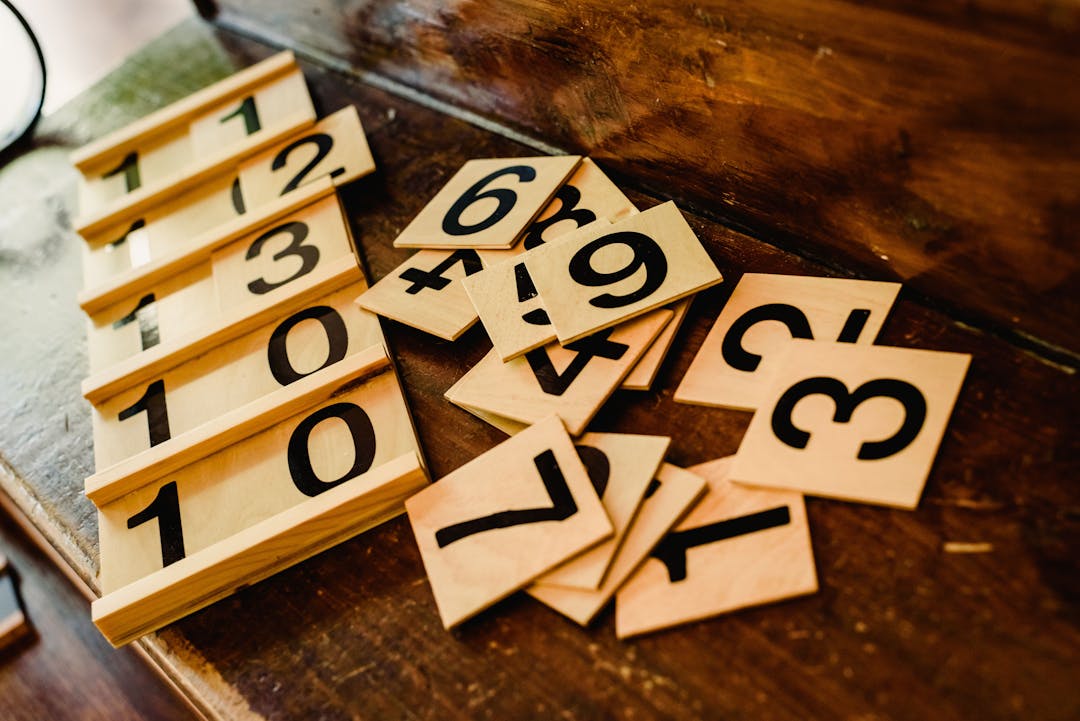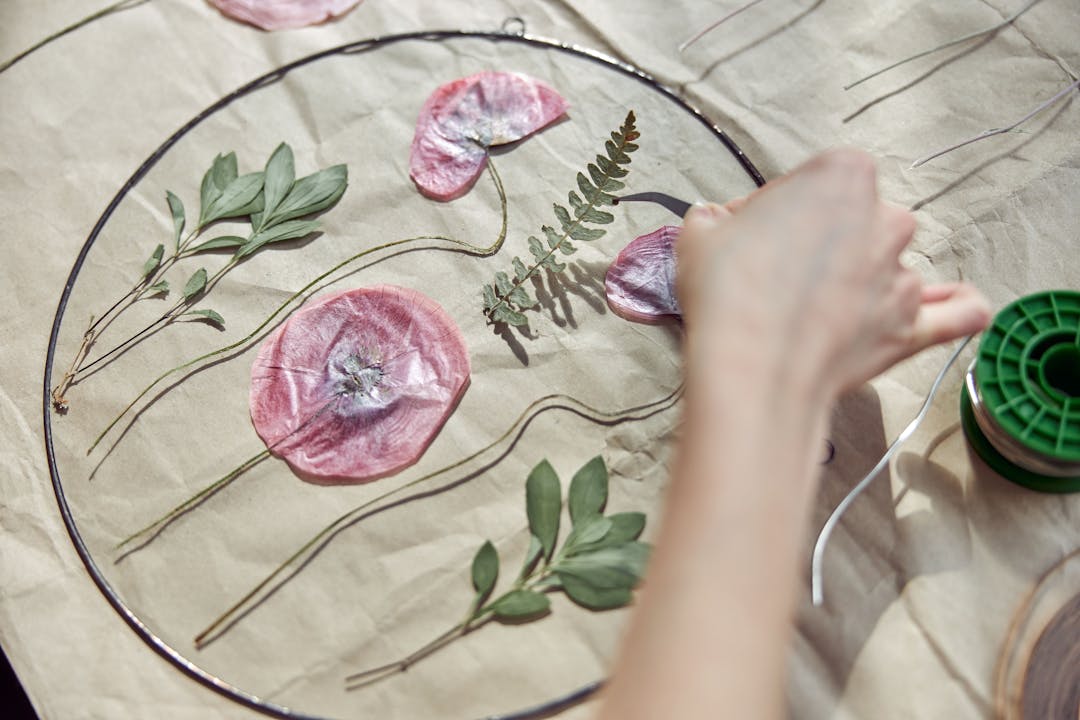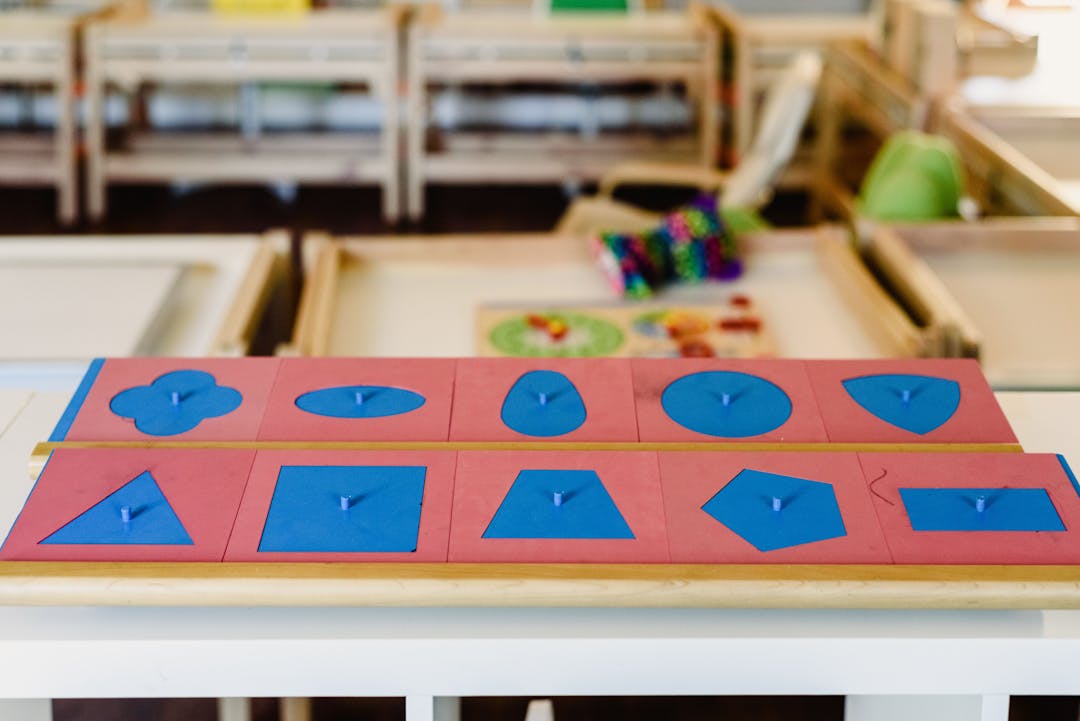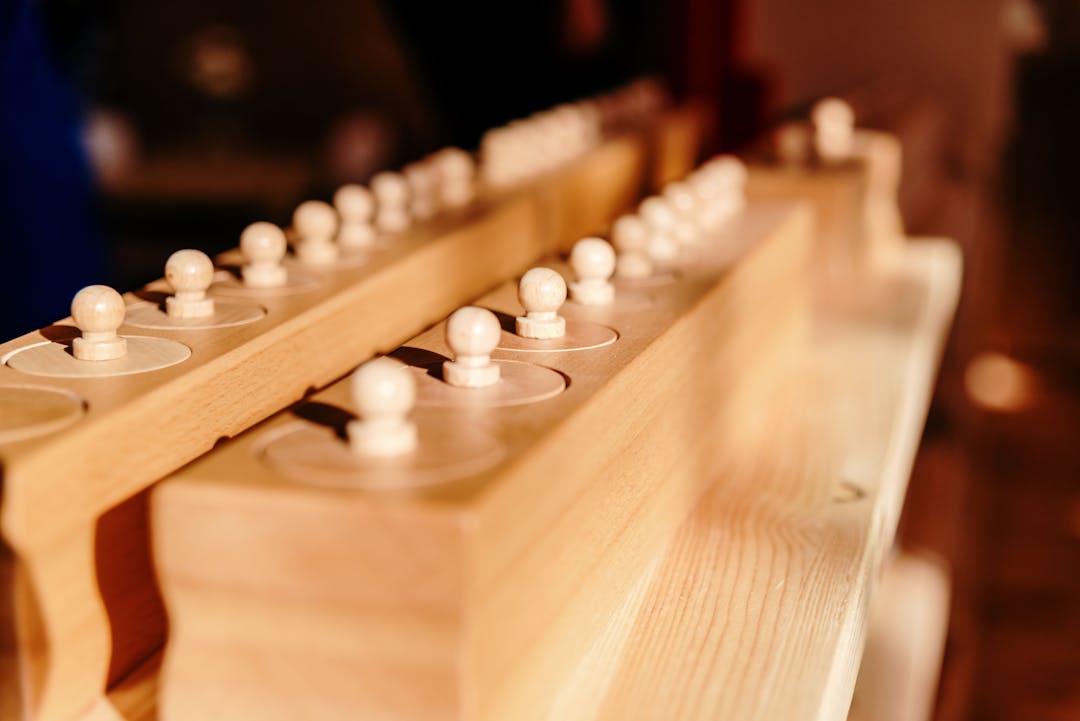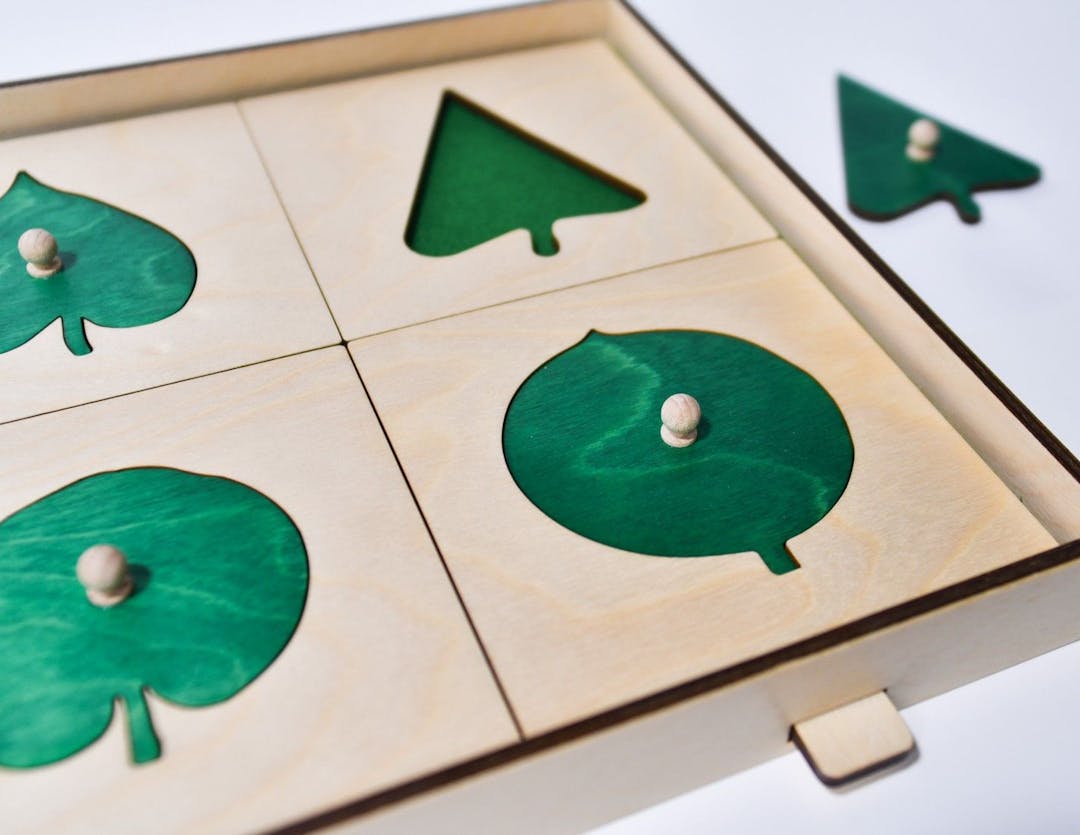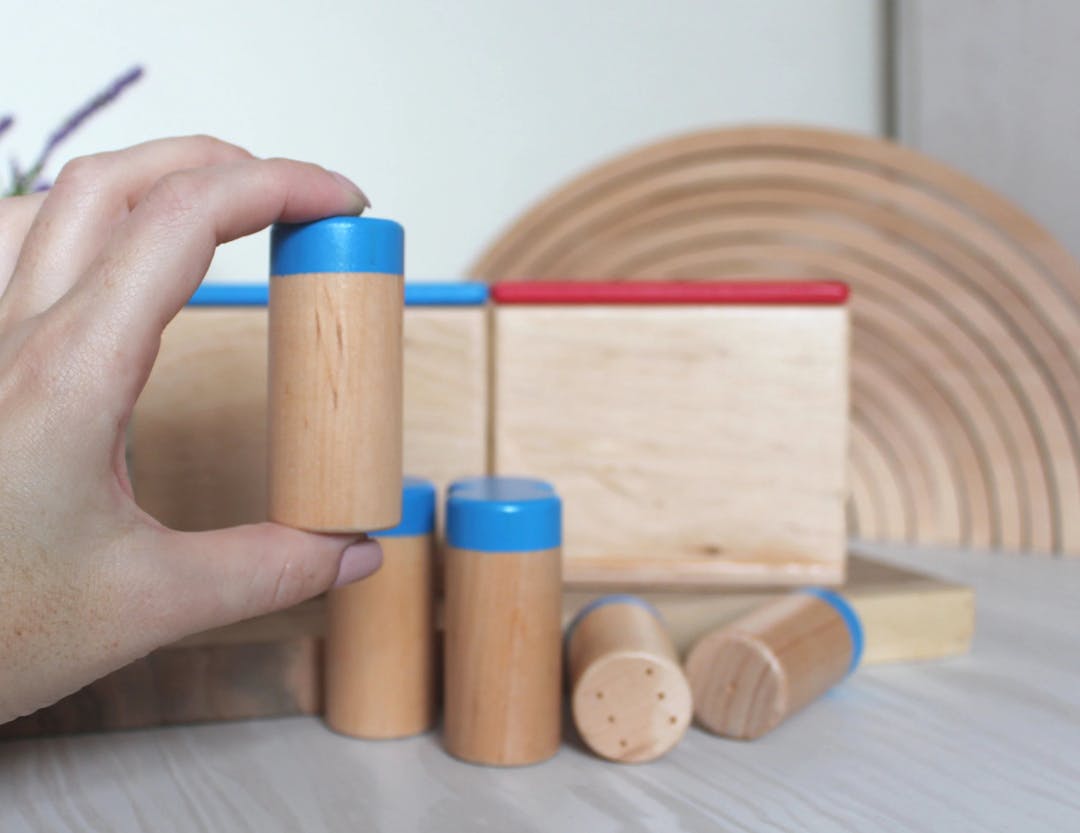Early years programme (Pre-KG, LKG & UKG)
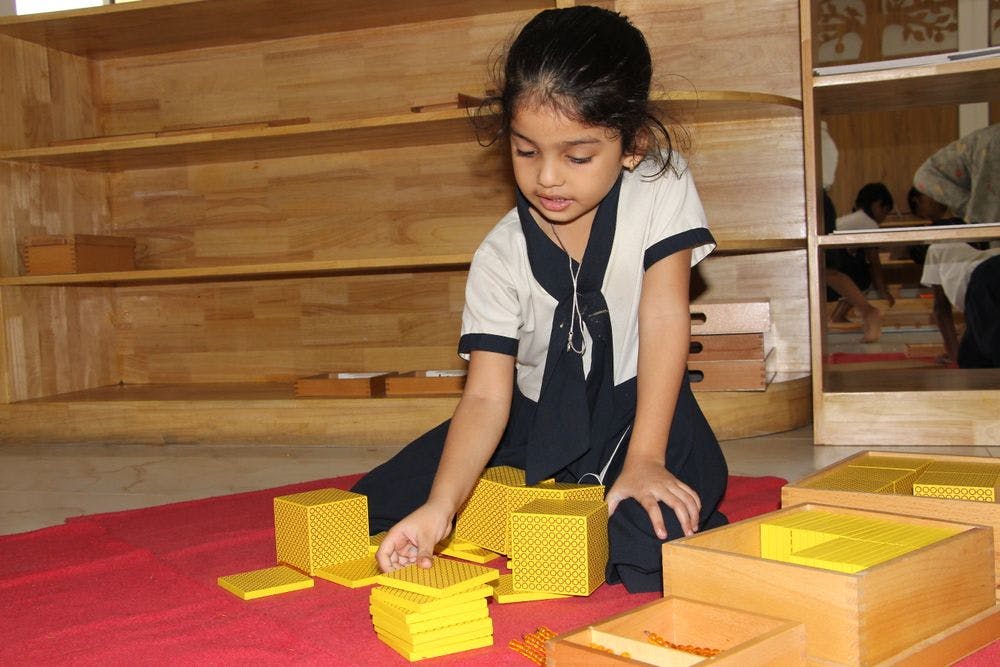
What will your child learn at our school?
In the kindergarten, the awakening of the senses, training in listening and looking, learning to make friends, enjoying stories and play, creative expression in arts and crafts take precedence over the formal learning of reading and writing. Its more designed as a theme based learning rather than subject based learning. Exams have no central role whatsoever at these levels.
Many times education is only viewed and focused on academic growth and the year becomes a preparation to score at the end of each year. But can academic progress be the only marker to a successful education?
Montessori viewed education as one that prepares the child for life. To persevere, be aware of oneself and others, respectfully disagree, to collaborate, empathise and make the right and difficult choices all are equally important in life as to finding the sum of a problem. This is a comprehensive view of education, considering all aspects of a child’s growing personality.
Each child is unique and their interests are varied. The teacher’s observation of each child in the classroom helps her in mapping the path for the children to be independent thinkers without limiting themselves to a curriculum or rote learning but expanding their knowledge and interest by hands on experiences and research.
The Montessori method of education opens doors for exploration and drives the young curious minds on a joyful learning journey.
The Curriculum
The Early Childhood classroom offers your child 5 areas of study: Practical Life, Sensorial, Math, Language,
and Cultural Studies.
Practical life
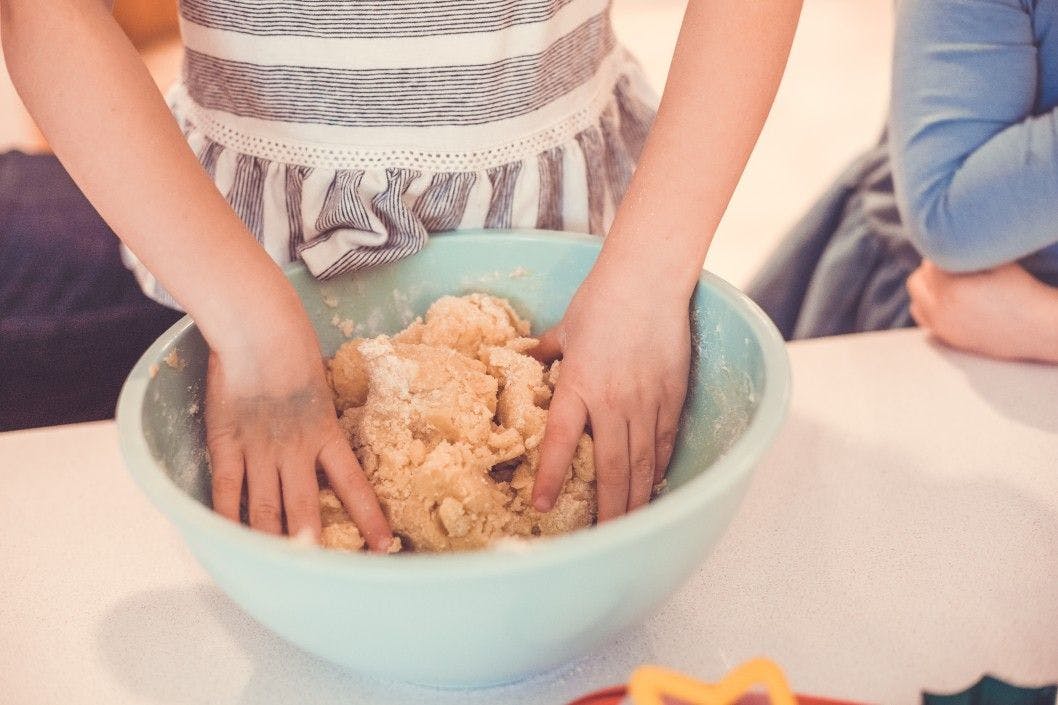
Children learn daily-life skills, such as how to get dressed, prepare snacks, set the table, and care for plants and animals. They also learn appropriate social interactions, such as saying please and thank-you, being kind and helpful, listening without interrupting, and resolving conflicts peacefully. In addition to teaching specific skills, Practical Life activities promote independence through self-care tasks like buttoning shirts or polishing shoes. These activities also develop fine-motor coordination by strengthening the muscles in the hands and fingers needed for writing.
Materials and Activities include:
- Spooning
- Tonging
- Threading
- Sweeping
Children develop the following skills:
- Demonstrate increasing awareness of the needs and rights of others
- Are open to new challanges and taking considered risks
- Approach new safe situations with confidence
- Begin to initiate negotiating and sharing behaviours
- Make choices and desicions
Sensorial
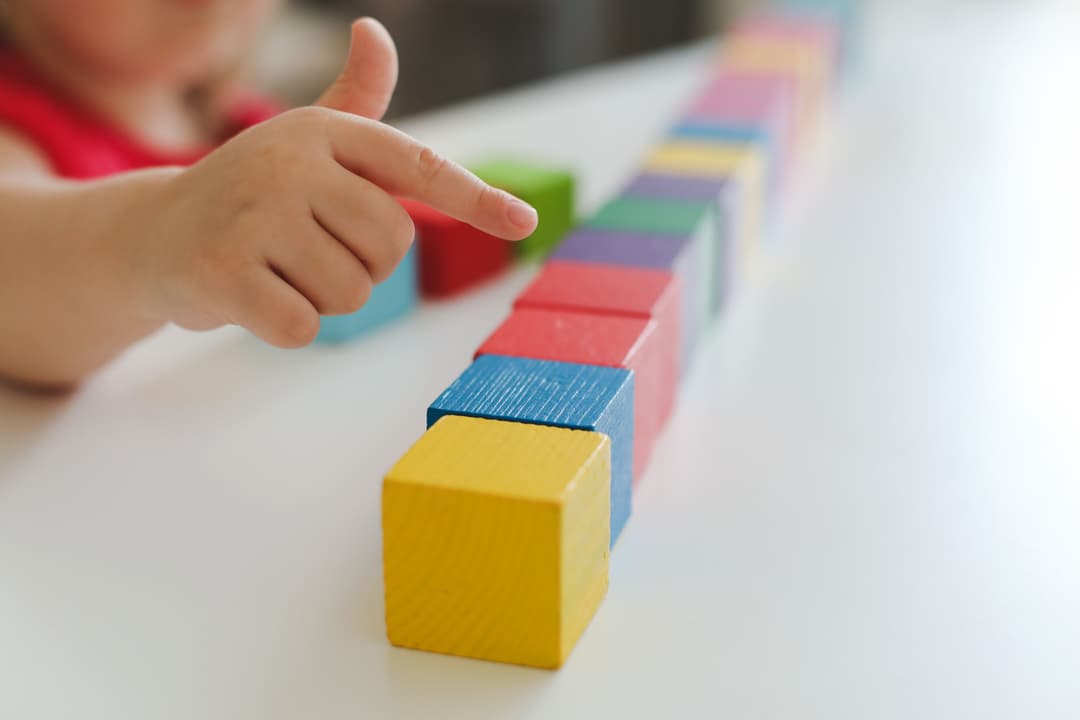
Children develop skills in perceiving the world through their different senses, and learn how to describe and name their experiences—for example, rough and smooth, perceived through touch. Sensorial learning helps children classify their surroundings and create order. It lays the foundation for learning by developing the ability to classify, sort, and discriminate—skills necessary in math, geometry, and language.
Materials and Activities include:
- Pink Tower
- Colour Box
- Geometric Solids
- Trinomial Cube
Children develop the following skills:
- Uses and names a range of tools, resources and techniques in investigations
- Uses his/her senses to explore natural and built environments and materials for use in play situations
- Explores the purpose and function of a range of tools
- Manipulates and experiments with resources to investigate, take apart, assemble, invent and construct
- Utilises the senses to gain information when exploring the world around them
Math
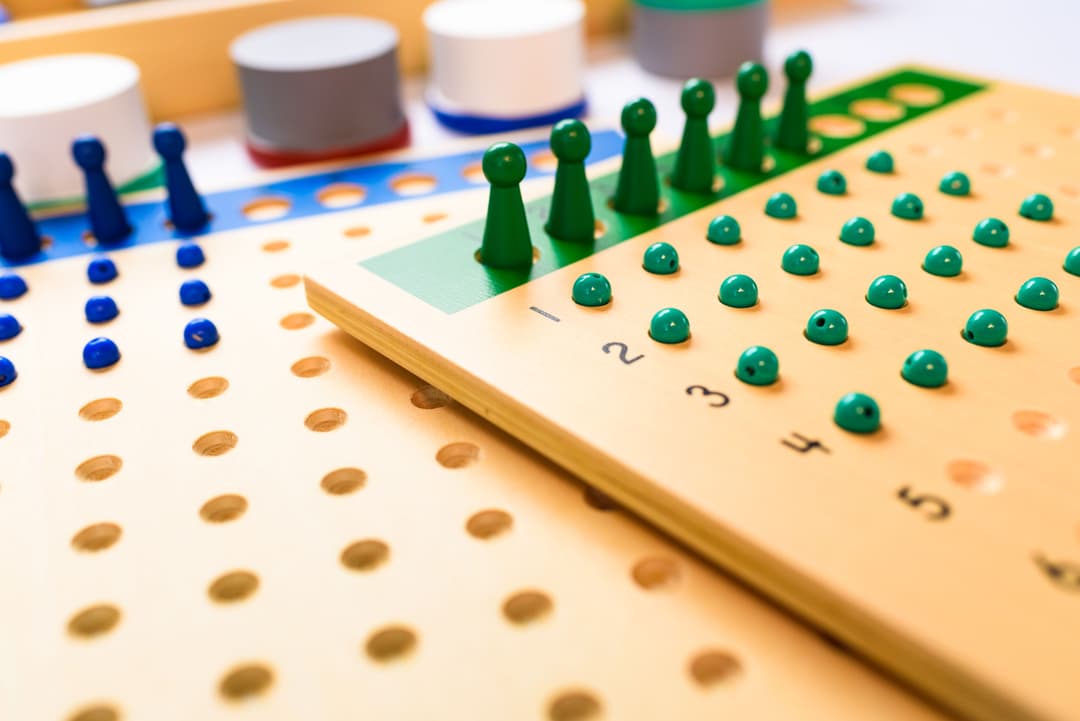
Through hands-on involvement, kids come to recognize numerals and relate them to their worth, comprehend place-value and the base-10 system of mathematics, as well as practice addition, subtraction, multiplication and division. Additionally they examine patterns in the number structure. With an investigative approach children learn more than simply memorizing math facts; rather gaining a solid comprehension of what lies behind them.
Materials and Activities include:
- Numerals and Counters
- Hanging Bead Stair
- Teen Boards
- Hundred Board
Children develop the following skills:
- Engage in simple investigations and explorations
- Apply a wide range of thinking strategies to solve problems
- Persist when faced with challenges and when first attempts are not successful
- Uses reflective thinking to consider why things happen and what can be learned
- Develops investigative skills through instructive play and experiential learning
Language
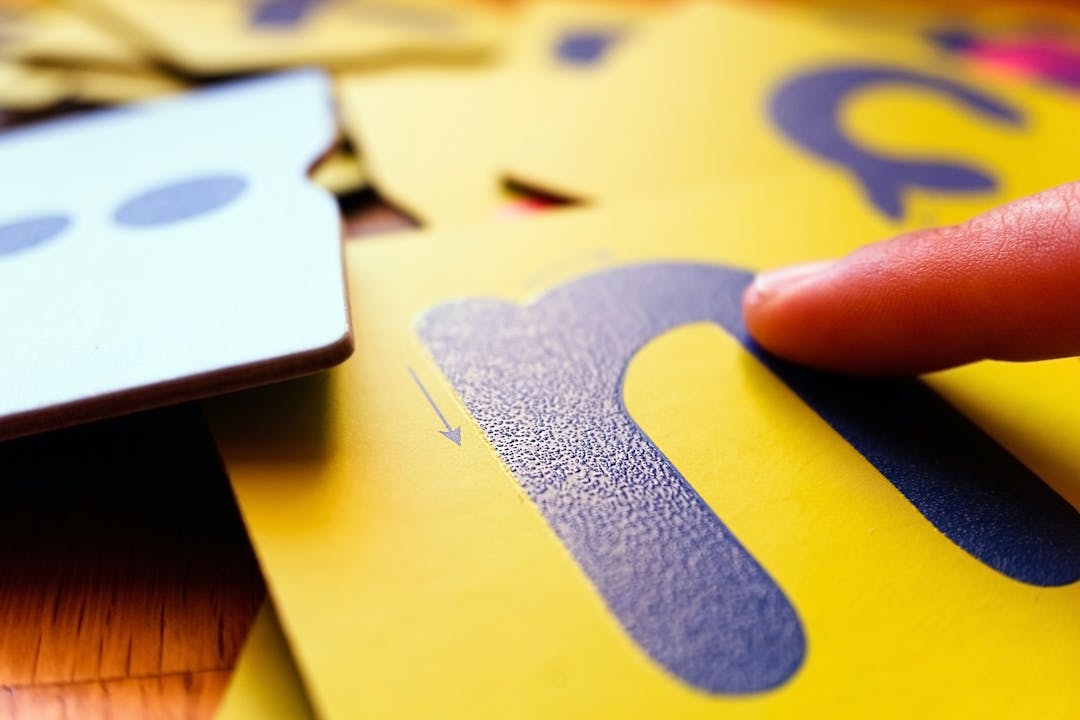
Activities throughout the Early Childhood classroom teach language, help children acquire vocabulary, and develop skills needed for writing and reading. The ability to write, a precursor to reading, is taught first. Using hands-on materials, children learn letter sounds, how to combine sounds to make words , how more than one word makes a sentence , and how different letters are formed with a pencil . Once these skills are acquired through instruction and practice,, children spontaneously learn to read on their own by matching the spoken word with the printed word,.
Materials and Activities include:
- Sandpaper Letters
- Moveable Alphabet
- Metal Insets
- Three Part Cards
Children develop the following skills:
- Attempts to 'read' and shares texts for personal purposes
- Explores texts from a range of different perspectives
- Actively uses, engages with, and shares their enjoyment of language
- Investigates words and word meanings
- Makes connections between text and their own experiences and ideas
- Identifies some elements of books and conventional texts
- Recognises components of text, e.g. letters, words, sentence, pictures, page, title, author, illustrator
- Recognises own written name
Cultural studies
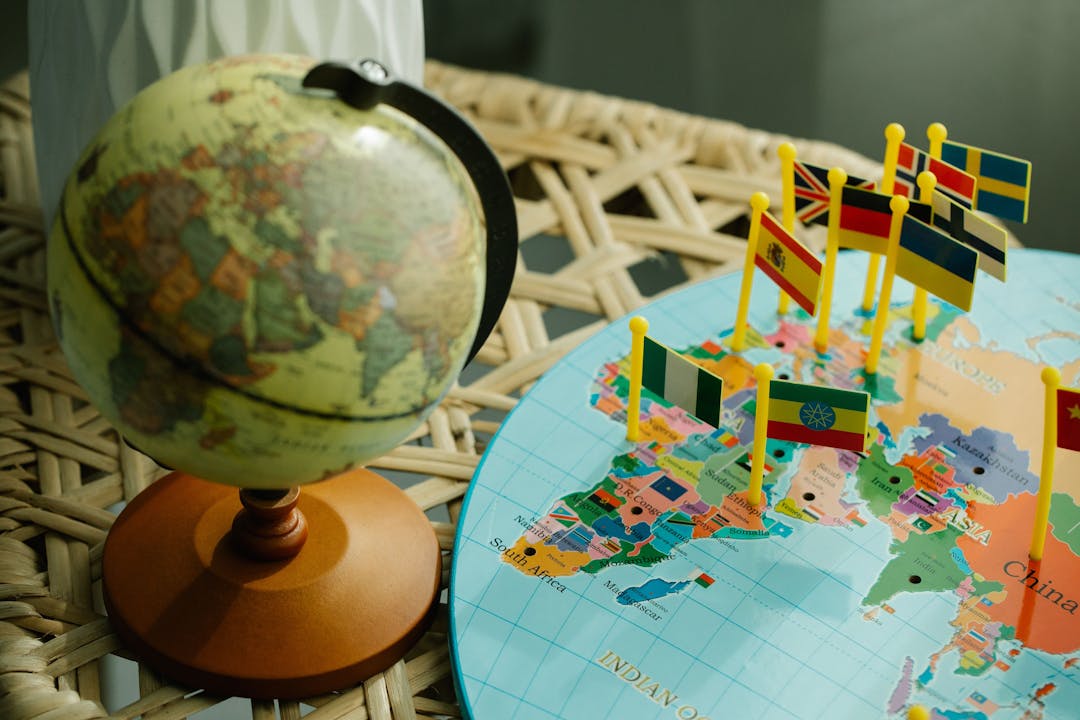
The cultural area of the curriculum integrates a wide range of subjects, including history, geography, science, art, and music. Through these lessons, children learn about their own community and the world around them. By discovering similarities and differences among people and places, they develop an understanding and appreciation of the diversity of our world. This respect for all living things is an important value to instill in young children.
Materials and Activities include:
- Land and Water Forms
- Continent Boxes
- Life Cycle Puzzle and Activities
- Map Cabinet
Children develop the following skills:
- Engages in and contributes to shared play experiences
- Expresses a range of emotions, thoughts and views constructively
- Displays awareness and respect of others’ perspectives
- Reflects on their actions and considers consequences for others
- Recognises own and others emotions
- Shows interest in other children and being part of a group
- Children develop investigative skills, ask questions, and apply a range of thinking strategies
- Children use their senses to explore, investigate, and create
- Children participate in physical activities and follow the rules of the games
- Children respond to challenges and demonstrates problem-solving skills
Learning outcomes
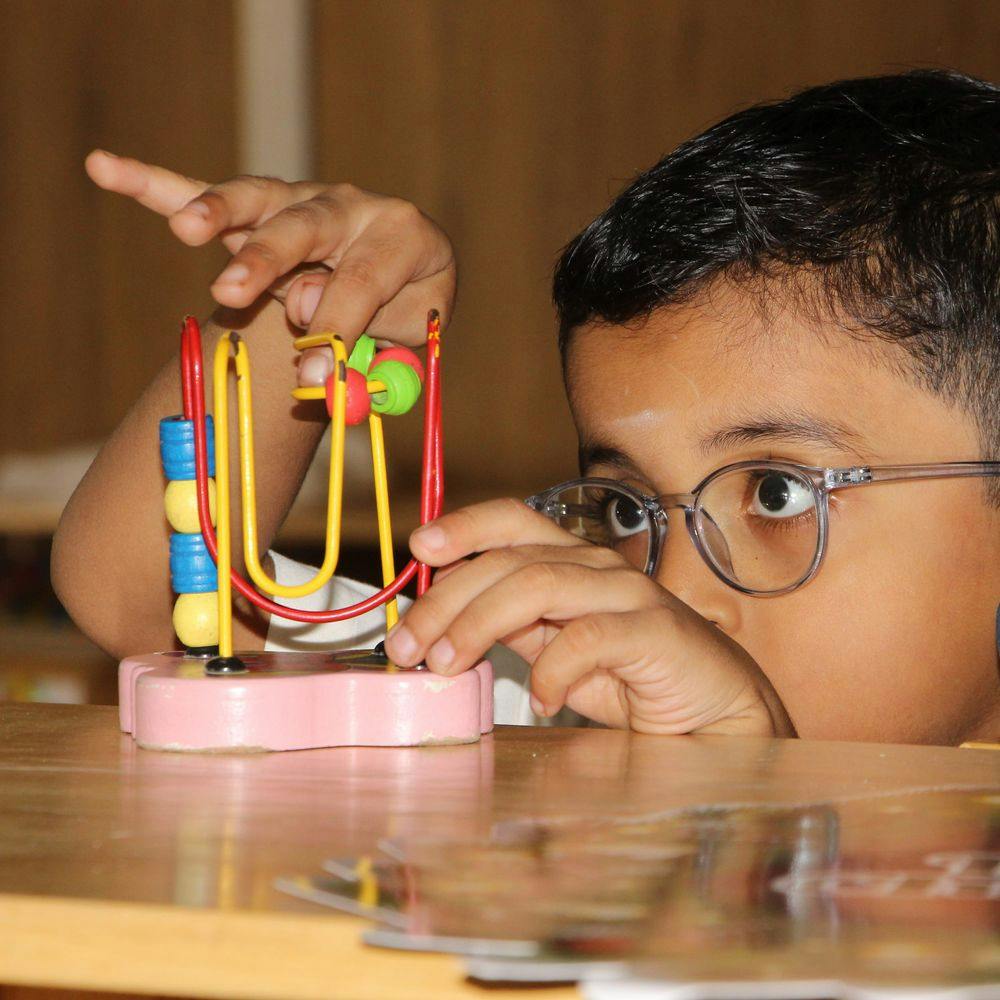
- Children have a strong sense of identity: The Montessori framework provides children with freedom, independence and choice to develop a strong sense of self.
- Children are connected with and contribute to their world: Montessori Education nurtures real-life skills, an appreciation for diversity, and strong social-skills that empower children to contribute to the world.
- Children have a strong sense of well-being: Montessori Education is equally focused on developing children’s sense of wellbeing and strong academic foundations.
- Children are confident and involved learners: The Prepared Environment is designed to encourage freedom of movement and choice that empowers children to direct their own learning.
- Children are effective communicators: Montessori learning nurtures the development of effective communication, grace and courtesy, literacy, and social skills.

